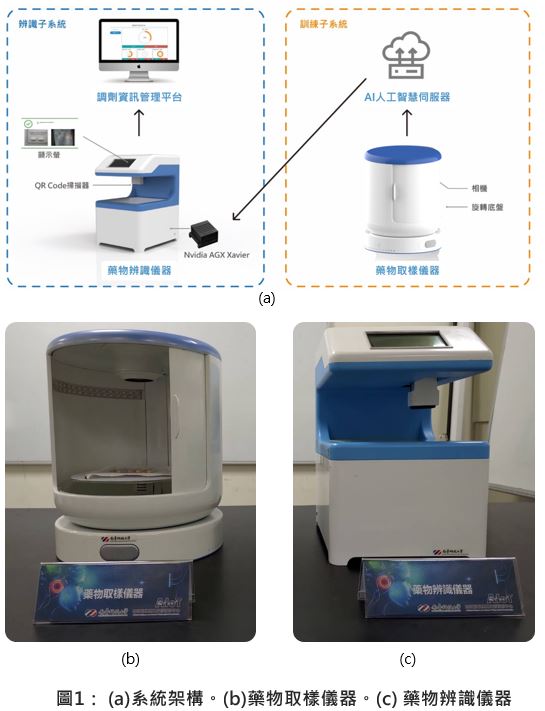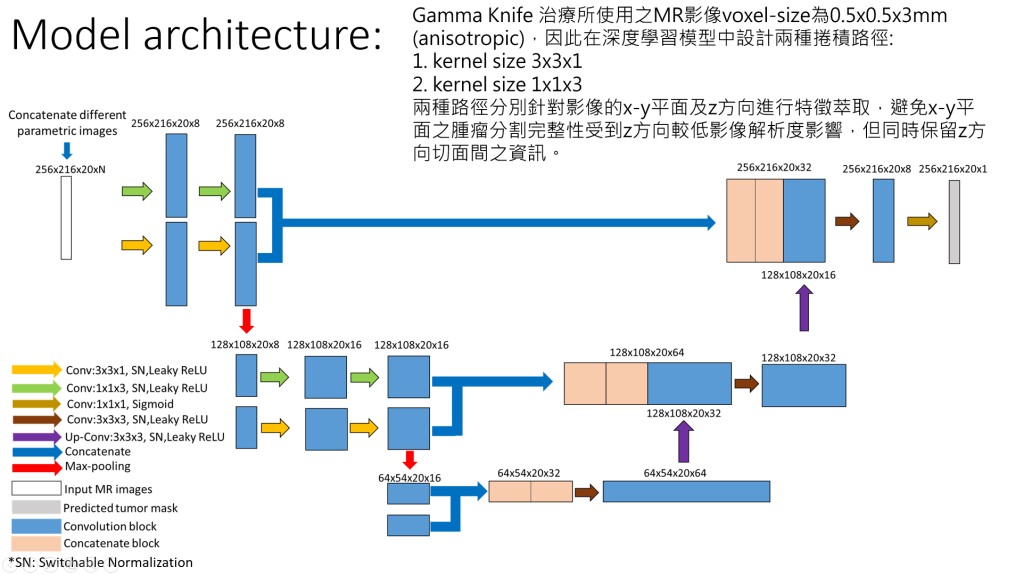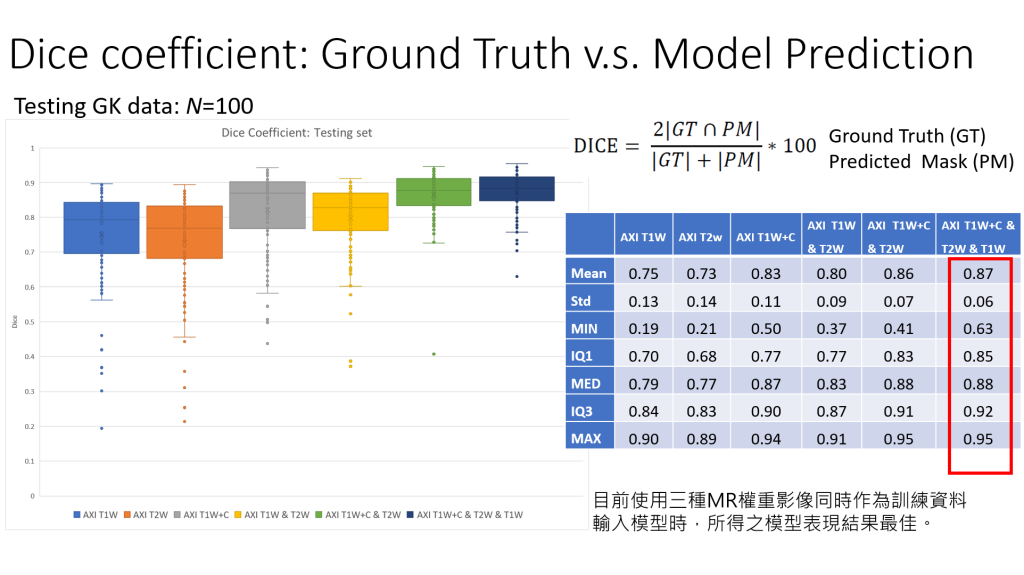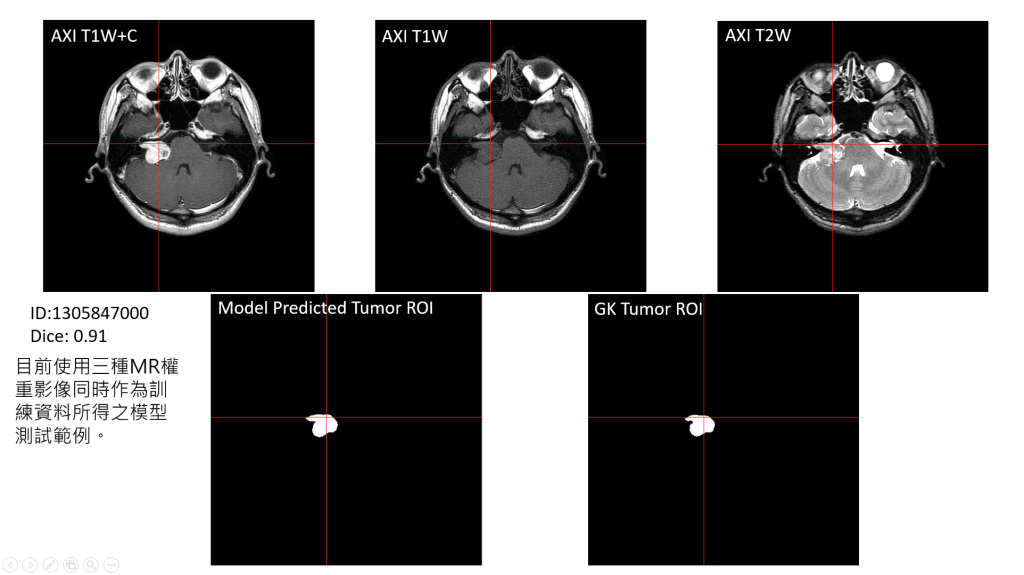| Technical Name | Automatic Tumor Segmentation and Prediction of Therapeutic Response to Gamma Knife Radiosurgery Based on Multi-parametric MRI in Vestibular Schwannoma | ||
|---|---|---|---|
| Project Operator | National Yang-Ming University | ||
| Project Host | 盧家鋒 吳智君 | ||
| Summary | The developed techniques focus on two aims: 1) To automatically segment the vestibular schwannoma from multi-parametric MRI using the modified convolutional neural network; 2) To predict the therapeutic response to gamma knife radiosurgery based on the pre-treatment MR radiomics. The tumor segmentation has a dice coefficient of 0.88 and the accuracy of response prediction is around 77.1%. |
||
| Scientific Breakthrough | This study is the first one applying end-to-end segmentation on large amount of Vestibular Schwannoma images. We modified the U-Net with switchable normalization and Leaky RELU. In order to solve the problem of anisotropic voxel-size, we divided the convolutional encoder into two pathways, one pathway for the two-dimensional x-y direction and the second pathway for the z direction of images. |
||
| Industrial Applicability | The automatically Vestibular Schwannoma segmentation system from multi-parametric MR images can be applied on clinical diagnosis and help the development of precision medicine. The progress of model building can be transferred to other brain tumor segmentation research or to the medical industrials, and also help the integration between the AI technical team and the clinicians. |
||
| Keyword | Gamma knife radiosurgery Acoustic Tumor Vestibular Schwannoma Machine learning Deep learning Convolutional neural network Tumor segmentation Magnetic resonance image Radiomics Multi-parametric MRI | ||
- L850818@gmail.com
other people also saw







